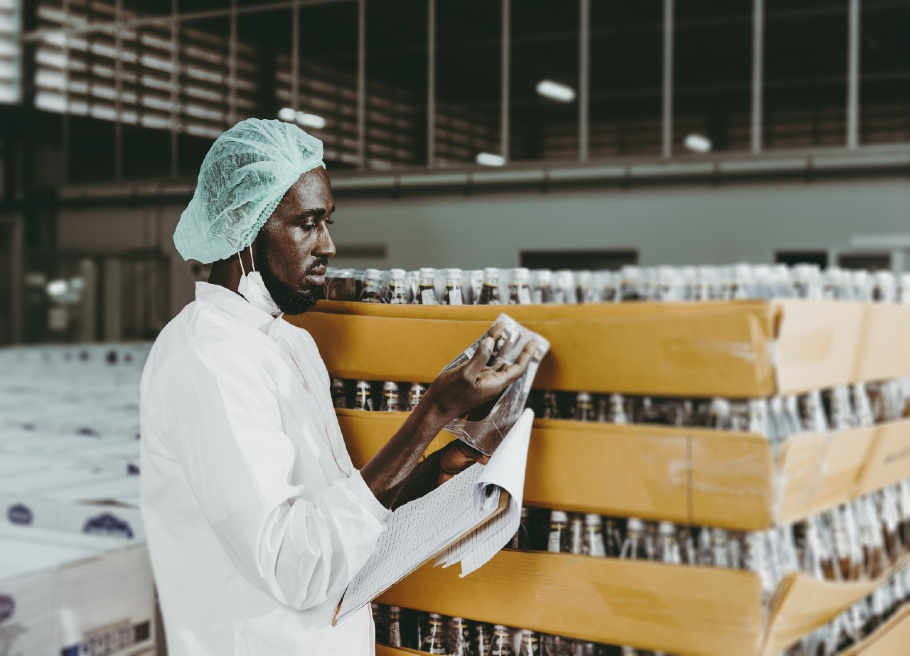Fortifying the Future: Food Safety and Business Resilience
Content Produced by GFSR
Every food and beverage organization wants to be known for consistently delivering safe, high-quality food products to consumers – their reputations depend on it. Large food and beverage companies have established stringent quality control processes, including comprehensive supplier verification programs and regular audits to ensure compliance with food safety standards, traceability technology and analytics, and comprehensive employee training programs.
Several Global Food Safety Initiative (GFSI) standards also incorporate a business continuity aspect – chief among them are the British Retail Consortium (BRC) and Safe Quality Food Initiative (SQFI).
According to a report on business continuity management in food from BSI Group, there are several essential aspects to an effective business continuity plan:
- The process should be driven by senior management.
- A cross-functional “Business Continuity Management Team” should be assembled and trained on their roles, responsibilities, and interactions.
- Create a comprehensive risk assessment of potential threats to the organization.
- Develop and implement an effective Business Continuity Management Plan that reduces the probability of incidents and includes plans that detail how to respond to and recover from relevant crises.
- Assemble a central repository of key information, including contact details for key personnel and relevant internal/external stakeholders and authorities, sources for legal and expert advice, supplier profiles and traceability details, how to prioritize tasks during and following a crisis, and who is responsible for internal and external communications.
- Testing continuity plans at a minimum once annually is also important.
So how does this all apply to food safety?
We asked Steve Hather, Group Chief Risk Officer for Coca-Cola Hellenic Bottling Company (CCHBC), one of the worlds largest bottlers of Coca-Cola products, how business resilience is applied to food safety. CCHBC’s risk profile is extensive as it operates in 29 countries, so a comprehensive approach is necessary.
A well-designed risk assessment is also essential and should consider inputs like impact, likelihood, and the effectiveness of mitigation.
“Food safety is a key outcome of our business resilience program. For CCHBC, the phrase “business resilience” encompasses proactive risk management, addressing emerging and current risks and opportunities stemming from change and uncertainty to sustain long-term business growth. This comprehensive approach encompasses traditional risk management, business continuity, and crisis management programs.
Several vital principles underpin our resilience program:
- People Safety – this includes staff, contractors, customers, and consumers.
- Proactivity – this means identifying and managing risk early enough that it can be turned into an opportunity to grow the business.
- A “Customer First” mentality means internally providing optimal conditions and removing any barriers that stand in the way of delivering consistent value to customers.
- Cross-functionality – no single department or area function can assess and manage risk in a silo; Resilience is a team sport.
- Seamlessness – risk management, security, business continuity, and crisis management are all integrated and aligned.
- Data-driven – measuring the effectiveness of what we do and how it adds value to our strategic objectives is critical.
“Product quality and food safety” is classified as a Principal Risk. What that means it requires constant monitoring and assessment and is part of our public reporting profile. For example, the current assessment was included in our Annual Report and can be found on our website. It means also that there is a very structured process that lies behind that assessment.
Risk reviews are part of the monthly management routines of business units senior leadership teams, with the support of the Group Business Resilience Team. The information collected is part of the biannual reviews with the quality, safety, and environment teams, accompanied by feedback from customers and consumers and data from our internal monitoring program.
Any “incidents” are reviewed immediately and in real-time by a cross-functional group. Organizations should always have a program in place through which incidents can be reported and resolved. At CCHBC, we have an Incident Management and Crisis Resolution (IMCR) system.
A well-designed risk assessment is also essential and should consider inputs like impact, likelihood, and the effectiveness of mitigation. Because the consequences of a food safety problem are always significant, we, like most organizations have set a high bar regarding health and safety, reputation, and financial impact.
In the shorter term, the likelihood of food safety-related incidents is affected primarily by ingredients and packaging, the integrity of production processes, and distribution. These factors can be mitigated by implementing effective quality management systems that hold people accountable and create cross-functional awareness, comprehensive audit standards, security management plans that protect the integrity of a company’s processes and procedures, and internal testing and assurance. Relevant company leaders should also monitor product and packaging performance.
In the medium to longer term, another group of drivers affects food safety. Supplier networks can change for various reasons, including ingredient shortages caused by weather or an event like a pandemic. Water is fundamental for beverage companies, and access to high-quality water sources will become less predictable due to climate change.
Packaging requirements will also change over time, and a constantly evolving regulatory environment impacts product formulations, manufacturing, and distribution, all of which have food safety implications.
Things are constantly changing, so resilience in the food and beverage space is critical.
Robust risk management, business continuity programs, and crisis management protocols are “must have” components of an effective Business Resilience Program and can give your company a high level of confidence that they can deliver safe, high-quality products now and into the future.”

-
 FeaturedRisk management
The Cost of a Breach: What a Cyberattack Could Mean for Food Safety Recalls
FeaturedRisk management
The Cost of a Breach: What a Cyberattack Could Mean for Food Safety Recalls
-
 FeaturedRisk management
Securing the Food Chain: How ISO/IEC 27001 Strengthens Cybersecurity
FeaturedRisk management
Securing the Food Chain: How ISO/IEC 27001 Strengthens Cybersecurity
-
 FeaturedRisk management
Revolutionizing Food Safety Training: Breaking Out of the “Check-the-Box” Mentality
FeaturedRisk management
Revolutionizing Food Safety Training: Breaking Out of the “Check-the-Box” Mentality
-
 GFSI Standards
GFSI 2025: Building Trust, Tech-Forward Solutions, and Global Unity in Food Safety
GFSI Standards
GFSI 2025: Building Trust, Tech-Forward Solutions, and Global Unity in Food Safety
-
 FeaturedFood Safety
Integrated Pest Management: Strategies to Protect Your Brand’s Reputation
FeaturedFood Safety
Integrated Pest Management: Strategies to Protect Your Brand’s Reputation
-
 FeaturedFood Safety Culture & Training
No Open Door Policy: Challenges That Impact Pest Control in Food Processing Plants
FeaturedFood Safety Culture & Training
No Open Door Policy: Challenges That Impact Pest Control in Food Processing Plants




